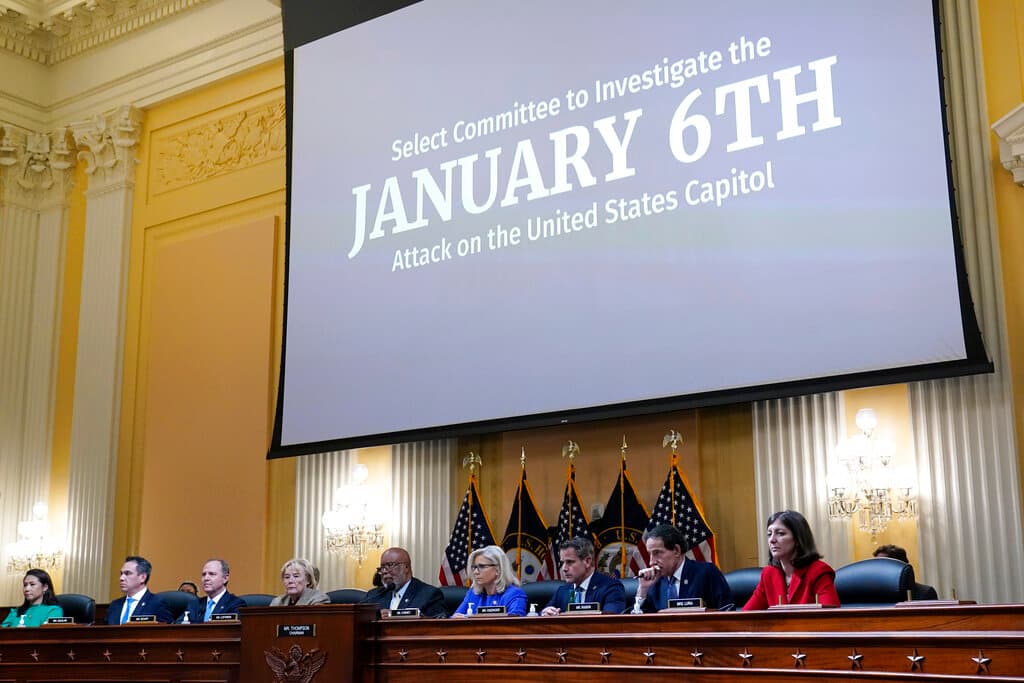Criminal Referrals From J6 Committee Spell New Legal Peril for Trump
Congress clams up on whom it might refer, but the former president could be among those recommended for prosecution.

The announcement that the January 6 committee would make criminal referrals to the Department of Justice augurs fresh fallout from the riot at the Capitol, one that could bring President Trump a step closer to facing criminal charges. That decision will ultimately rest with Attorney General Garland.
The word on referrals came from Congressman Bennie Thompson, chairman of the committee. He told reporters Tuesday that while the committee has “made decisions that criminal referrals will happen,” no specific individuals have been tabbed. CNN reports that Mr. Thompson indicated that possible perjury by witnesses is “part of the discussion.”
The subcommittee tasked with reaching a decision on the referral question comprises four lawyers; Representatives Liz Cheney, Jamie Raskin, Zoe Lofgren, and Adam Schiff. More than a dozen former prosecutors are on staff, supporting the committee’s work behind the scenes.
One source tells CNN that the referrals “will be focused on the main organizers and leaders of the attacks.” The decision to refer comes as the special counsel appointed to investigate Mr. Trump’s role in the events of January 6, 2021, Jack Smith, issued his first swatch of subpoenas, to local officials in Arizona, Michigan, and Wisconsin.
The demands for those records explicitly name Mr. Trump, his campaign, and a roster of aides, allies, and associates, suggesting that Mr. Smith is zeroing in on the former president’s post-election activities in those states. A criminal investigation into efforts to overturn the 2020 election is under way in Georgia.
The decision by the J6 committee to issue referrals to the DOJ comes on the heels of government prosecutors notching a signature courtroom victory with the conviction of the leader of the Oath Keepers, Elmer Stewart Rhodes, a Yale-educated lawyer, and several of his associates for seditious conspiracy and other felonies.
The question of whether the committee would issue referrals has been a fraught one. In June, Mr. Thompson replied, “That’s not our job,” when asked about referrals. Another member, Representative Elaine Luria, responded that if “criminal activity occurred, it is our responsibility to report that activity to the DOJ.”
The committee, in its final public hearing, issued a subpoena for documents and testimony to Mr. Trump, who has thus far resisted complying. A majority vote of the full House is needed to hold him in contempt, an outcome that will seemingly be precluded when Republicans take the reins in January.
Congress is meant to make the laws and not enforce them, meaning that any referral is merely a recommendation that does not bind Mr. Garland to prosecute. The Supreme Court noted in United States v. Nixon that the “Executive Branch has exclusive authority and absolute discretion to decide whether to prosecute a case.”
In a 1985 case, Heckler v. Chaney, the high court held that criminal prosecutions are the “special province of the executive branch.” This jurisdiction is at the heart of prosecutorial discretion, which Justice Robert Jackson, a one-time attorney general, termed a “tremendous” power.
Even if Special Counsel Smith, and ultimately Mr. Garland, are not bound by recommendations issued from the halls of Congress, it could be that the committee’s imprimatur serves to tip the discretionary scales toward indictment.

